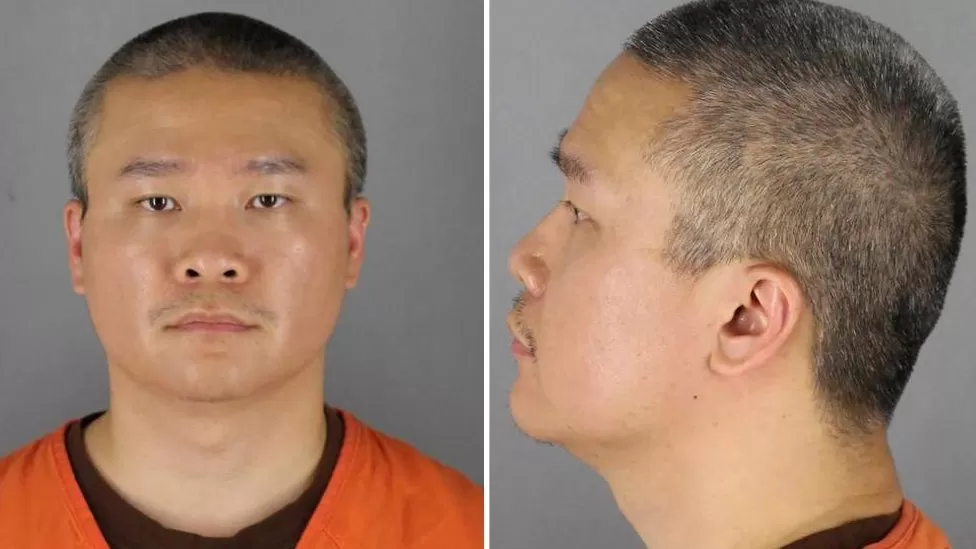Ex-officer in George Floyd case gets 57 months for role in killing

In the death of George Floyd, a former Minneapolis police officer was sentenced to 57 months in prison (almost five years).
As a result of a Minnesota jury’s verdict in May, Tou Thao was convicted of aiding and abetting manslaughter.
According to Mr Thao, he acted as a traffic cone, preventing bystanders from approaching Mr Floyd while Derek Chauvin kneeled on his neck for nearly ten minutes.
On 25 May 2020, mass protests erupted across the US in response to Mr Floyd’s death.
There were federal civil rights charges against all four former police officers involved in the incident, as well as state murder charges against Mr Chauvin. Former officers Thomas Lane and J Alexander Kueng pleaded guilty to aiding and abetting second-degree murder.
His 57 months will be served concurrently with the three and a half years he was sentenced to for his civil rights conviction.
As part of his agreement to waive his right to a jury trial, the former officer instead asked Judge Peter Cahill to determine the verdict in his manslaughter case. As well as waiving the right to testify, he waived the right to question witnesses as well.
An ex-Minneapolis police officer has been sentenced to 57 months (almost five years) in prison for his role in George Floyd’s death.
As a result of a Minnesota jury’s verdict in May, Tou Thao was convicted of aiding and abetting manslaughter.
According to Mr Thao, he acted as a traffic cone, preventing bystanders from approaching Mr Floyd while Derek Chauvin kneeled on his neck for nearly ten minutes.
On 25 May 2020, mass protests erupted across the US in response to Mr Floyd’s death.
There were federal civil rights charges against all four former police officers involved in the incident, as well as state murder charges against Mr Chauvin. The two ex-officers were convicted of second-degree manslaughter for aiding and abetting.
The 57 months will be served simultaneously by Thao, who was sentenced to three and a half years after pleading guilty to a civil rights violation.
In the manslaughter case, the former officer waived the right to a jury trial, instead choosing to have Judge Peter Cahill decide the fate of the case. A waiver of the right to testify and question witnesses was also signed by him.
